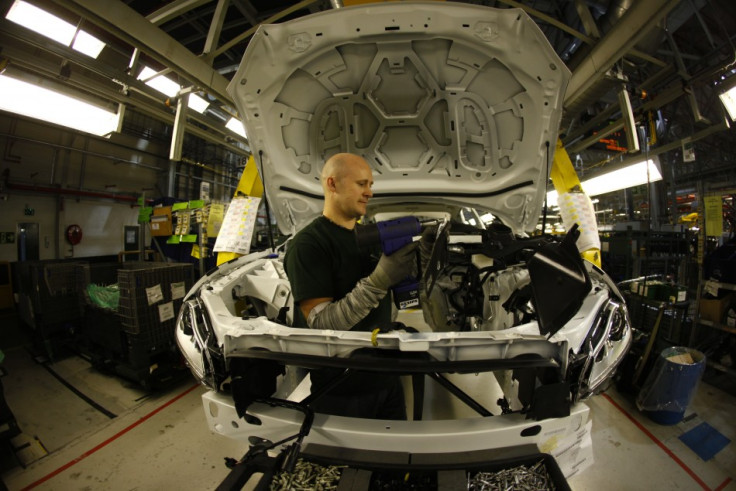UK Energy Efficiency Failing Due to Lack of Tax Breaks and Hard Regulation

Britain is failing to become more energy efficient and is stunting economic growth by not implementing tax breaks to production companies, says a former special Adviser to UK Parliamentary Committees on energy.
Speaking with IBTimes UK, Professor Michael Laughton, fellow at the Institute of Electrical and Electronics Engineers (IEEE) says that tax breaks for producers is the only way for the UK to meet consumer energy efficiency targets and to stimulate economic growth, as the company will bear the brunt of costs up front.
"In the US, the government granted tax breaks to producers, in order to stimulate industry growth and therefore allow consumers to take up more energy efficient products and services," said Laughton, who is also an Emertitus Professor of Electrical Engineering at University of London.
"For example, one motoring manufacturer in the US designed a much more energy efficient model. In the US there was a take up of 30%. But in the UK it was only 5%, despite the endless marketing, and do you know why?"
"It is because British consumers would have pay that cost upfront because the UK does not grant tax breaks for production companies."
British Mentality Over Short Term Costs
Laughton highlighted a number of comparable situations where tax breaks in the US for producers had made a marked impact for industry growth as more consumers adopted the products and services, while the UK has fallen behind.
"Big producers, such as Tata Steel, have paid their own costs for ramping up efficiency, which has therefore had an effect on its growth and passed it onto the end-user," said Laughton.
"However, for smaller companies, the short term cost for producing more energy efficient products or services would be borne by the consumer and in British culture - this doesn't bode well with the them."
"The big deterrent for any British consumer is that you have got to spend money up front to get the benefits of energy efficiency and therefore it means less people will literally buy into this."
Laughton emphasised that even when it comes to consumers being able cut their own energy bills by insulating their houses properly, the fact that they would have to pay a short term cost for long-term benefit, deters them from doing so.
UK Trailing Behind US and Rest of Europe
In the same vein for energy efficiency in the household, Laughton highlighted how other countries, such as the US and in Europe, have ramped up energy efficiency for electrical appliances, while the UK is falling further behind.
In 1987, President Reagan signed legislation requiring national energy conservation standards for large appliances. The efficiency standards apply to 12 specific classes of major home appliances, such as refrigerators, stoves and air conditioners.
The conservation legislation was pegged to save enough energy to equal the output of 22 power plants, by the turn of the century, and save consumers from $28bn to $30bn in energy costs by the same year.
"In the US they pass a law to give the industry a clear sign of how to move forward and tells them what to do," said Laughton.
"However, the British attitude is to try and persuade companies to do something, rather than put it into law. This is how we ended up with the labelling approach."
For electrical items in the European Union, the Energy Labelling Directive requires that appliances be labelled to show their power consumption in such a manner that it is possible to compare the efficiency with that of other makes and models.
The intention is that consumers will prefer more energy efficient appliances over those with a higher consumption, resulting in less efficient products eventually being withdrawn or decommissioned.
"Can you guess what happened when British consumers were faced with a choice with a cheap less energy efficient fridge versus a more expensive but energy efficient fridge?" said Laughton.
"We chose the cheaper option. Meanwhile a study in Brussels 3 or 4 years ago showed that countries such as Italy were increasingly adopting more energy efficiency goods, while the UK was falling."
Laughton said how these methods may work in some countries for the UK, we need the companies to bear the short term costs and tax breaks will undoubtedly help.
"Tax breaks for producers will not only achieve this but it will also stimulate the rest of the economy with the growth in the industry," said Laughton.
"The producers need tax breaks, but this is not a feature on our landscape, but it should be. The carrot is more important than the stick."
© Copyright IBTimes 2025. All rights reserved.






















